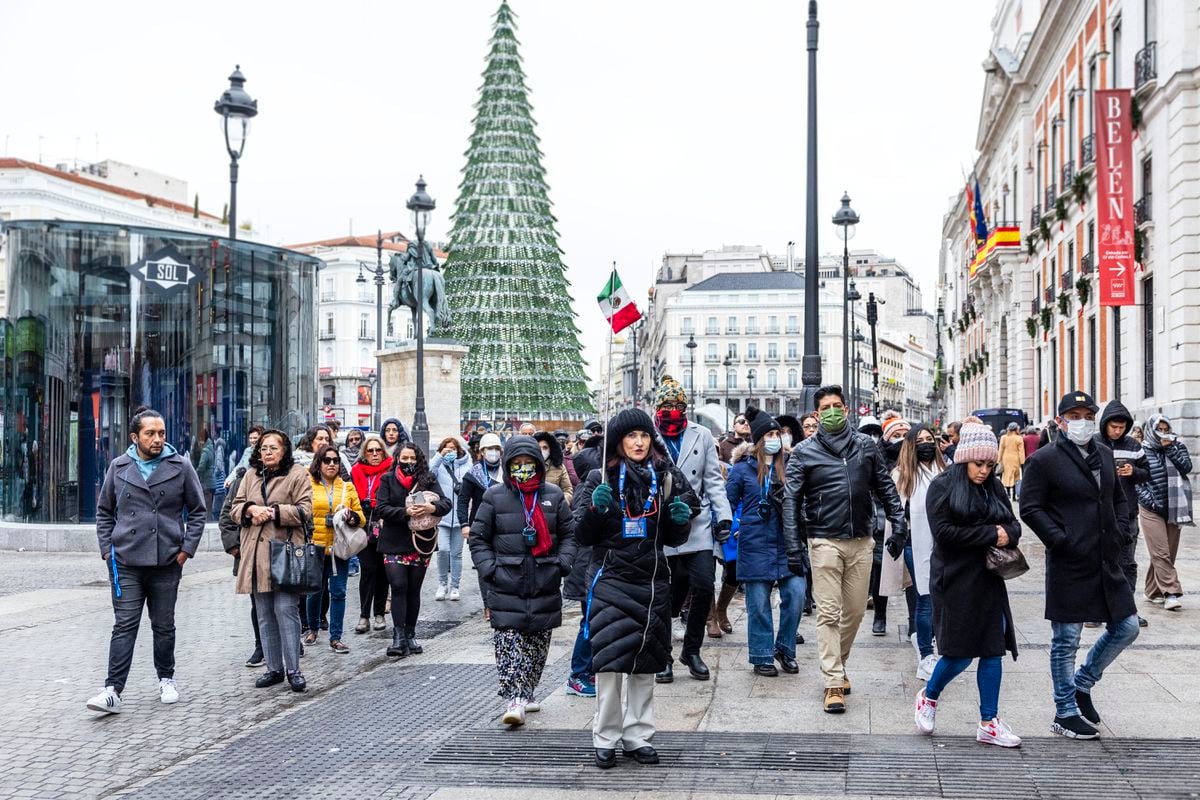12/26/2020 11:08 AM
Clarín.com
Politics
Updated 12/26/2020 11:08
Roberto Lavagna, former Minister of Economy of Eduardo Duhalde and Néstor Kirchner and a former presidential candidate last year, published a
harsh document
this Saturday.
Under the title "The time has come. No more excuses", it makes a crude analysis of the economic and social situation and
six proposals
to be developed from next year.
"The accumulation of 10 years of stagnation, including economic downturn and the pandemic, have put Argentines all at a difficult crossroads.
The failure of populist policies
on the one hand,
or adjustment
policies
on the other, plus the paralysis derived from the pandemic, have taken the socioeconomic reality to
unsustainable levels
as shown by the poverty and indigence figures, both from INDEC and from the Observatory of Argentine Social Debt (of the UCA) ", starts the text that the economist published on his social networks.
Lavagna focuses on the creation of private employment, "protecting acquired rights but incorporating the majority who today are excluded, without any right,
to modern forms of employment."
And in betting on investment and the search for productivity.
In addition, it proposes
preventing public employment from continuing to grow "where it should not
" and "penalizing useless and bureaucratic interventionism. In short, giving more power to citizens and less to structures, managerial, union and spurious alliances between the State and pseudo entrepreneurs ".
Another of his proposals is to
lower "the operating costs of the political system"
, and "progressively disarm the subsidy system that favors concentration in Capital and Greater Buenos Aires."
But it also refers to retirements.
"To give equity to the retirement system of those who earn the least by making
different adjustments to higher pensions and pensions
, in order to reduce the abysmal differences that exist today between the minimum and the privileged systems."
The former Minister of Economy warned that there will be resistance from "politicians, businessmen, trade unionists, public works corporations, justice corporations, media, intellectuals."
But he also remarks that many of these same groups "fed up with stagnation, with the decline in the world, with growing poverty, with territorial disarticulation, will be able to see how unsustainable the situation we are in".
THE TIME CAME.
NO MORE EXCUSES - https://t.co/E4R0rs4ToI
- Roberto Lavagna (@RLavagna) December 26, 2020
He also refers to "fiscal creativity" where he mentions "wind subsidies, unlimited renewable monopolies" and what he qualifies as "small detours" such as "VTVs, automotive registrations, parking meters, wind taxes".
And he concludes: "We have been proposing many of these changes for a long time, but society seems stunned by the cries of two models that we define - by consensus - as parts of 'the crack'. To move forward, we must identify those who have already been unable, each in turn, to begin to reverse the decline and move us towards recovery and growth. "
Roberto Lavagna and his document "The time has come. No more excuses."
Photo: Fernando de la Orden.
Here the complete document published this Saturday:
"The time has come. No more excuses"
We are entering the final week of a very difficult 2020. The accumulation of 10 years of stagnation, including the economic downturn and the pandemic, have put all Argentines at a difficult crossroads.
The failure of populist policies on the one hand, or of adjustment policies on the other, plus the paralysis derived from the pandemic, have brought the socioeconomic reality to unsustainable levels, as shown by the poverty and indigence figures, both from INDEC and the Observatory of the Argentine Social Debt (of the UCA).
It is necessary to react now with some behavioral changes. Just a few examples:
1) to put the creation of private work as a central objective, protecting acquired rights but incorporating the majority who today are excluded, without any right, to modern forms of employment;
2) give investment and the search for productivity a central role in solving the stagnation and impoverishment of Argentines;
3) give equity to the retirement system of those who earn the least by making different adjustments to higher pensions and retirements, in order to reduce the abysmal differences that exist today between the minimum and the privileged systems. This implies both national regimes and the inevitable changes in provincial systems, widely deficient and loaded with privileges;
4) start with a process, which will take time, but cannot be postponed, of lowering the operating costs of the political system. Smaller chambers in terms of the number of members, unicameral provincial legislatures, sharply smaller deliberative councils, strict limits on the number of advisers, etc. The effect is not only of savings and better use of resources, but it will help to reconcile the politics with those most in need. Modifying behaviors and values is central in a process of change;
5) prevent public employment from continuing to grow where it should not. It grew to about a million people in 15 years. Reeducate, redistribute, penalize useless and bureaucratic interventionism. In short, give more power to citizens and less to structures, managerial, union and spurious alliances between the State and pseudo-employers;
6) progressively disarm the subsidy system that favors concentration in Capital and Greater Buenos Aires, because it empties the interior of the country. It is imperative to re-federalize the Nation. We must start with the process of territorial transformation, without suffocating interventions but with fair rules of the game.
Roberto Lavagna, was Minister of Economy and candidate for President in 2019. Photo: Fernando de la Orden
What will there be resistance? Without a doubt: politicians, businessmen, trade unionists, public works corporations, justice corporations, media, intellectuals, etc ... Yes, but there will also be politicians, businessmen, trade unionists, public works corporations, justice corporations, media, intellectuals, etc. that fed up with the stagnation, the retreat in the world, the growing poverty, the territorial disarticulation, they will be able to see how unsustainable the situation we are in. Furthermore, they will be able to see what Argentine society will be like in 20 years if we do not make substantive changes.
The more rules, the less investments; the more interventions less productivity.
The more fiscal creativity, the more large deviations (wind subsidies, unlimited renewable monopolies); or small detours (VTVs, automotive registrations, parking meters, wind taxes, etc.).
The list is endless and is growing.
Argentines need a breath of fresh air, of greater freedom to move creatively; to be productive, not to craftily seek rents that are extracted from the State, which must YES take care of education, health, creating equal opportunities, security, science and technology.
There are hundreds of topics to address but it is useless to make infinite lists if there is no willingness to address core issues such as those listed. It's worth a try.
It is possible to build an Argentine society worthwhile in 20 years, very different from the one we have today and much more than the one we will have if we do not reverse the decline, if we do not change.
ALL, starting with the leadership defined in the broad sense.
We have been proposing many of these changes for a long time, but society seems stunned by the cries of two models that we define - by consensus - as parts of "the crack."
To move forward, we must identify those who have already been unable, each in turn, to begin to reverse the setback and move towards recovery and growth.
There is no time for any more excuses. Strength and hope for 2021.
Look also
Retirees: in the ruling party they want changes in the mobility formula approved by the Senate
Despite the greater stability of the dollar and the freezes, inflation in November remained high and was 3.2%













/cloudfront-eu-central-1.images.arcpublishing.com/prisa/KMEYMJKESBAZBE4MRBAM4TGHIQ.jpg)

